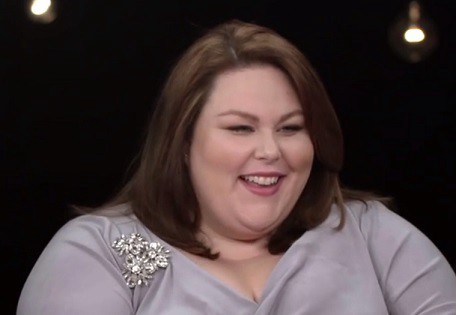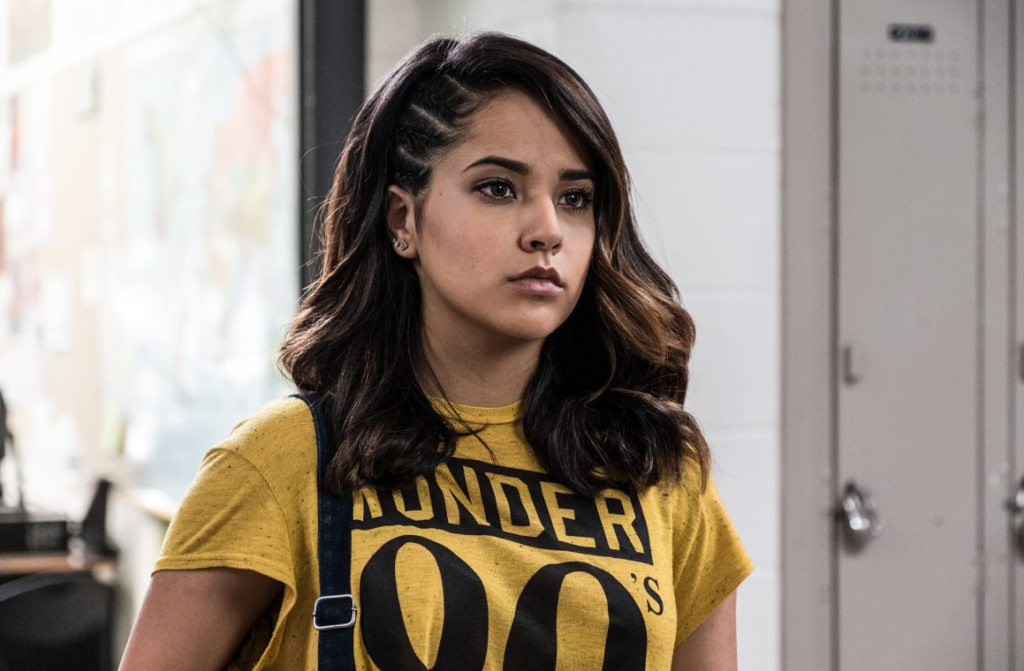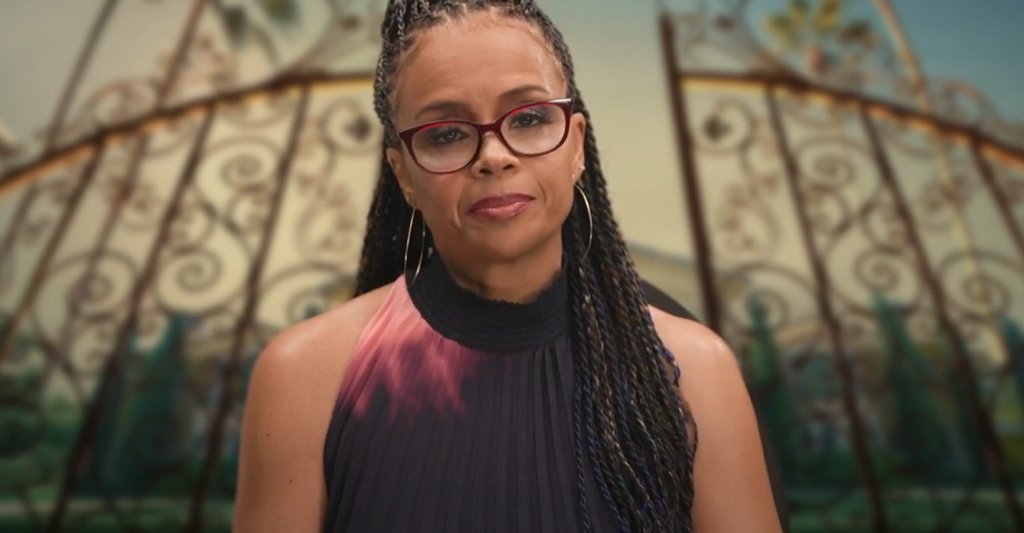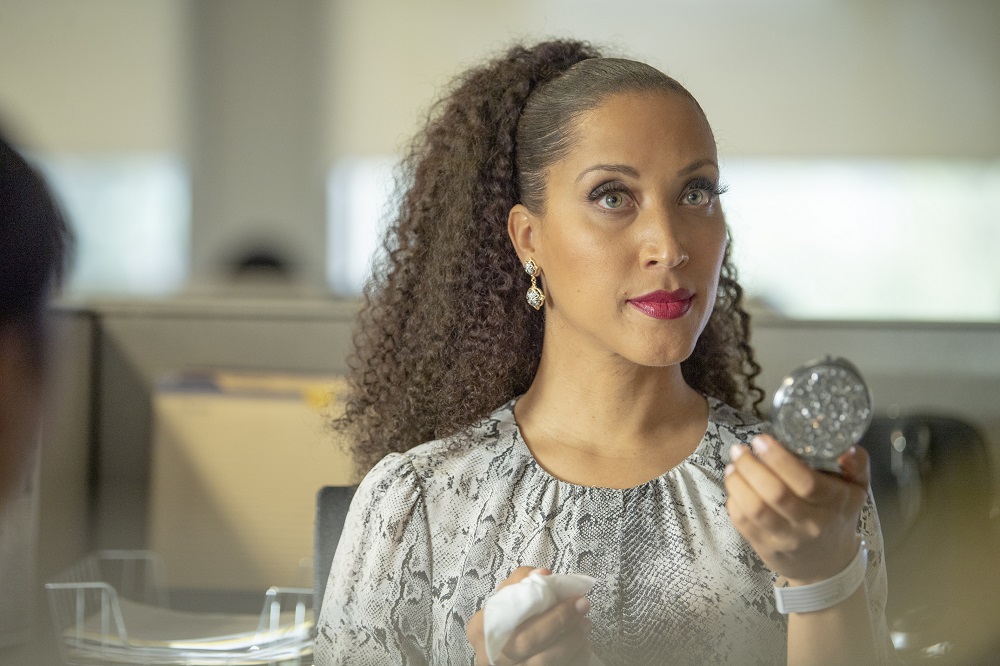Winfrey, Witherspoon, Kidman, Lange, and More Talk Hollywood’s Double Standards and Portraying Trauma in THR Roundtable
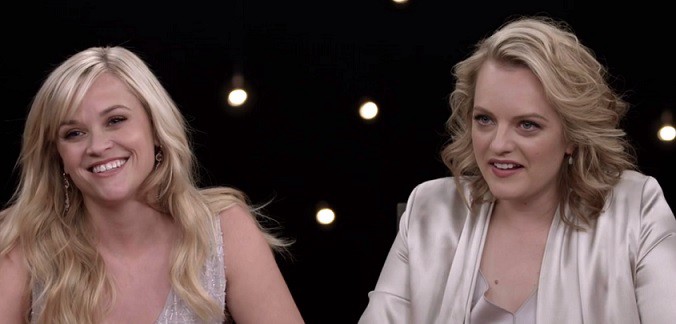
“I think everyone at this table is mission-driven,” Reese Witherspoon observed while participating in a roundtable hosted by The Hollywood Reporter. The Oscar winner explained, “We all have a mission to understand the greater humanity of women and to promote that.” Joining the “Big Little Lies” star in the discussion were other TV drama actresses with awards buzz: her “BLL” co-star Nicole Kidman, Oprah Winfrey (“The Immortal Life of Henrietta Lacks”), Jessica Lange (“Feud: Bette and Joan”), Elisabeth Moss (“The Handmaid’s Tale”), and Chrissy Metz (“This Is Us”).
The six stars addressed their responsibilities as storytellers, how the current political climate is affecting art, the different opportunities working in TV vs. film, portraying trauma onscreen, and plenty of other topics.
Here are some of the highlights of the discussion:
If they feel a sense of obligation to shed light on certain topics:
Witherspoon: “[Yes, by] just examining the human condition and also putting a bigger array and a more dynamic idea of what a woman is and what her experience is — and I think it has been such a great year. I look around the table [and think] about what these shows are and the topics that are coming up because of these shows, and it’s incredible. I have been talking about [‘The Handmaid’s Tale’] ad infinitum at dinner parties because it feels possible. I mean, you’re jogging and then you go in to buy a coffee and your credit card doesn’t work anymore. It could be any one of us.”
How “Feud” would have been different if Hillary Clinton were president:
Lange: “We started shooting in September, before the election, and Ryan [Murphy, the showrunner] said he was thinking, ‘Well, we’ll make this piece about misogyny, sexism, ageism, all of this, but come the beginning of the year, it might just be ironic.’ But of course …”
Moss: “It wasn’t.”
Lange: “No, we took a different turn, and I think it’s more relevant now than it could have possibly been at any other time. I don’t think we’ve ever seen this much misogyny, this much sexism, and I think the fact that we have this story that is set in a particular period, but obviously Hollywood in the 1960s, is just a microcosm of the greater atmosphere that we are all living through now.”
How Moss prepares for her rape scenes on “The Handmaid’s Tale”:
Moss: “I just thought, ‘What would one do in this situation?’ Which sounds so oversimple, perhaps, but I was just like, ‘If you were being sexually assaulted on a regular basis and you knew there was nothing you could do about it, what would you do?’ There’s no escape and you can’t fight back. And so I thought, ‘Well, she would probably try not to be there — try to go somewhere else.’”
Kidman: “Oh, yeah, that was so apparent.”
Moss: “You can’t be there. You can’t experience it. You wouldn’t make it. Which happens to women in that world; they don’t make it. So I was trying to show that she wasn’t there. And in the shooting of it, it was really important for us to have it be extremely clinical, mechanical; there’s nothing remotely sexual about it. It was really important to show it exactly for what it should be. That no one is enjoying this. That all three parties are in a terrible place.”
Why Winfrey is drawn to stories that depict sexual violence:
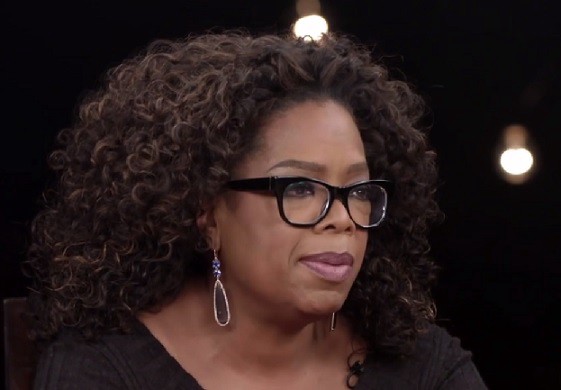
Winfrey: “I keep trying to share with the world what it means not just to be sexually violated but what it means to have someone who is a predator in your own space and to be preyed upon. Just as Reese was saying, we’re all about sharing the story that is going to raise consciousness on any level. I tried to do it for many years [on my talk show]. I did 127 interviews with victims of molestation, sexual abuse, sexual violence, or the molesters and rapists themselves in one form or another. And at the end of the show, I said it’s the one message I think I failed at — allowing people to see the depth of the pain, because everybody looks at the act itself, particularly when it comes to sexual molestation, and they want to know: Was there penetration or not? So I tried and tried and tried and tried. Now I’m doing it through our storyline on ‘Greenleaf’ [on OWN]. I try to do it with the subjects that I choose, the books that I choose, always trying to let people see the light of that.”
Witherspoon: “Sometimes art is a way that sort of removes you in a certain capacity.”
Winfrey: “I think it’s actually the best opportunity for people to see themselves.”
On what has and hasn’t changed in Hollywood since 1962, the year “Feud” is set in:
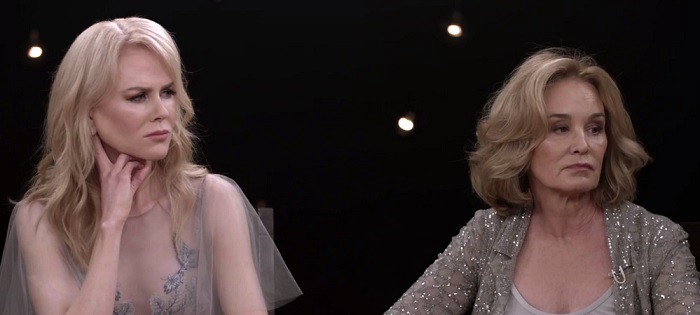
Lange: “When we were doing it, it was never with that thought of, ‘Oh, we’re doing a story that is still relevant today.’ But I’m at this point in my career where things have really dropped off. The idea that these women [Bette Davis and Joan Crawford] by their mid-50s were done, that the industry was finished with them, to a certain degree that still is the case. But TV has kind of stepped into that void that is left when your film career begins to really thin out. (Laughter.) And the characters that I’m playing now are as rich as the characters that I was playing in my 30s and 40s in films.”
Kidman: “I have turned down films to do TV because I love the seven hours of exploring a character, and it reaches more people. It costs so much money to make films and to market them and get them out there that they do have to be events or superhero movies.”
Witherspoon: “And people want to see all ages, ethnicities, and cultures represented.”
Winfrey: The audience responded to ‘This Is Us’ because they were thinking, “This is us.” So, it’s a perfect title.”
Metz: We had a contest, and [showrunner] Dan [Fogelman] was like, ‘We’ll give an iPad to whoever names the show.’ I think my title was ‘This Is Me and You’ or something along those lines. So I like to say that I had a hand in it. (Laughter.)”
On Hollywood’s tendency to lock people into lanes and expecting the actresses to play particular kinds of roles:
Metz: “Comedy was really my thing, and I guess they were like, ‘Oh, it’s the sad big girl; we better put her in some drama.’ I’m kidding, but I would love to do comedy. I would also love to do a project that is not about weight. So just a woman who happens to be going for a job interview or whatever. Slowly but surely it will happen.”
Witherspoon: “I started a production company five years ago because I was looking at maybe the worst script I’ve ever read in my entire life and it had two parts for women. I called my agents and said, ‘This is such a terrible script.’ They said, ‘Well, seven women want it so … you’re the only one who’s not vying for the part.’ And I thought, ‘God, if this is what we’ve come to, I have to get busy.’ Because you can either complain about a problem or you can be part of the solution.”
Kidman: “We created the show for that reason. The other thing is, being a woman and having children, there are so many things I would want to do, but so much of my life is, how do I balance that? If I had my fantasy life, there are so many roles and places and things I’d want to do. I’m now at a point where I have to go, ‘What is that going to cost me? And what is that going to cost the people I love? Do I want to leave now to do this?’ Men have that, but they don’t have it in the same way that we have it.”
Witherspoon: “They go away and come back and they’re a hero. We go away and come back and we have abandoned our children. (Laughs)”
Kidman: “We don’t get the choices as much with our careers and our lives because a lot of it is, we have to be there to take care of everything still. Or I do. And so a lot of my fantasy life is that I can go and read a play and then I’ve done it. I then don’t have to go and actually do it because I have done it in my bedroom. And that’s what I realized at this stage of my life. That’s going to have to be enough.”
Whether it’s possible to change that paradigm:
Witherspoon: “No, that’s a choice you’re making. I was talking to this very famous actor and I said, ‘How did you prepare for this role?’ He said, ‘Well, I went into the woods for three weeks and I didn’t talk to anybody.’ And this person has a lot of kids and is married. And he’s like, ‘You did the same thing for ‘Wild,’ right?’ I was like, ‘Uh, no.’ If I went away for three weeks and no one could call me, everybody would’ve had a mental breakdown. I got on a plane and was shooting within 24 hours. I wish I had prep time. I love the preparation. I love watching and reading and digging deep.”
Lange: “What happens is you pack [your children] up like a little troupe of gypsies with the dogs and you find another school and you do all that when you get to location, and you don’t have time to do any prep because you’re trying to find them art classes and …”
Witherspoon: “And camp.”
Kidman: “And then they have strep throat and you’re up at night.”
Lange: “But the only thing that I ever have regretted is saying yes to a film and the time that has taken me away from my children. I wish I had said no.”
Kidman: “Definitely.”
Witherspoon: “I did a movie every time I was pregnant, and I wish that I hadn’t. I just wish I’d just let myself be pregnant.”
Lange: “Yeah, just be pregnant, be home with the kids, don’t have something that you have to get up at 5 a.m. for. Those are the regrets, not the ones that you said no to but the ones you said yes to.”
Check out more of the roundtable, including video footage, over at THR.
